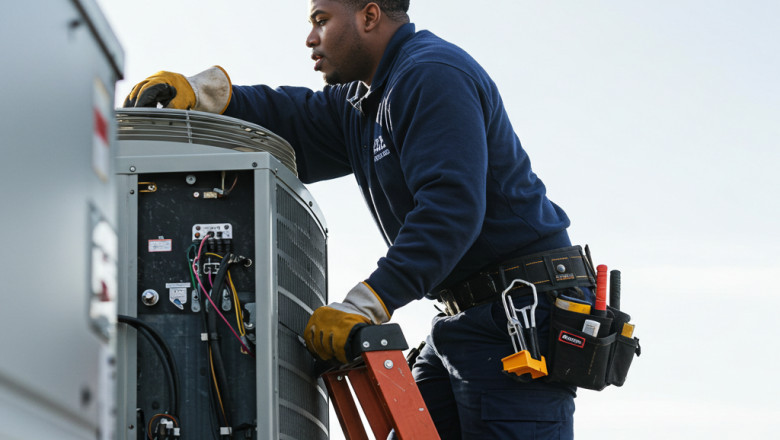views
What Qualifies as an HVAC Emergency Repair?
Your HVAC system is critical for maintaining comfort and safety in your home or business. However, some HVAC issues are urgent and require immediate action to prevent further damage, costly repairs, or even safety hazards. Knowing what qualifies as an HVAC emergency repair can save you time, money, and stress.
In this article, we’ll explain the common scenarios that demand immediate HVAC emergency repair and why quick professional intervention is essential.
What Is HVAC Emergency Repair?
HVAC emergency repair refers to urgent service required to fix critical problems in your heating, ventilation, or air conditioning system that cannot wait for routine maintenance or scheduled repairs. These emergencies often affect your safety, system functionality, or indoor air quality.
Common Signs That Require HVAC Emergency Repair
1. Complete HVAC System Breakdown
If your heating or cooling system stops working entirely, especially during extreme weather conditions, it qualifies as an HVAC emergency. Immediate repair is essential to restore comfort and avoid unsafe indoor temperatures.
2. Electrical Issues and Sparks
Sparking, burning smells, or tripped breakers linked to your HVAC system indicate potential electrical faults. These pose a fire hazard and require urgent professional repair to prevent damage or danger.
3. Gas Leaks or Smell of Natural Gas
If your HVAC uses natural gas and you smell gas near the furnace or vents, this is a serious emergency. Gas leaks require immediate evacuation and emergency repair by certified technicians to avoid explosions or poisoning.
4. Water Leaks or Flooding from HVAC Unit
Excessive water leaks from your HVAC system, including the air conditioner or furnace, can cause water damage, mold growth, and system failure. Emergency repair is necessary to stop the leak and fix the source quickly.
5. No Heating During Freezing Weather
Loss of heating during very cold weather is not only uncomfortable but dangerous. If your furnace or heat pump fails when temperatures drop, prompt HVAC emergency repair is critical to protect your home and health.
6. Strange Noises Indicating Mechanical Failure
Loud banging, grinding, or screeching noises often signal major mechanical problems that can cause further damage if ignored. Immediate evaluation and repair prevent breakdowns and costly replacements.
Why You Should Not Delay HVAC Emergency Repair
Ignoring HVAC emergencies can lead to:
Complete system failure requiring expensive replacement
Safety risks such as fires, gas leaks, or carbon monoxide poisoning
Damage to your property from water leaks or electrical faults
Uncomfortable and unsafe indoor environments
Fast action ensures safety, protects your investment, and restores comfort quickly.
How to Handle an HVAC Emergency
Turn off the HVAC system if you suspect electrical problems or gas leaks
Evacuate the area immediately if you smell gas
Contact a licensed HVAC professional who offers emergency repair services
Avoid attempting DIY fixes on electrical or gas components
Conclusion
Understanding what qualifies as an HVAC emergency repair helps you recognize when to act fast. If you experience complete system failure, electrical hazards, gas leaks, or severe water damage, don’t wait—call an HVAC emergency repair specialist immediately to protect your home and family.













Comments
0 comment